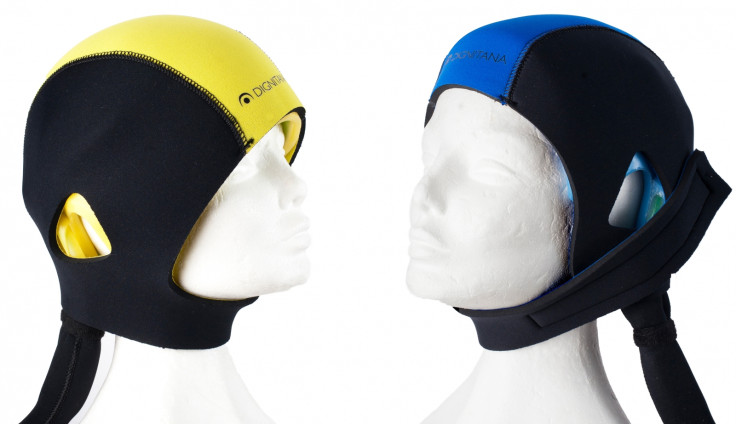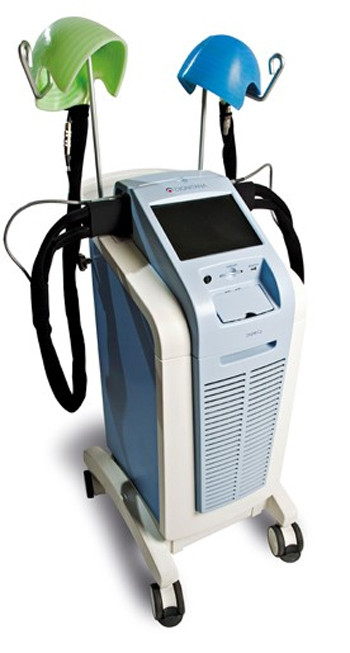DigniCap: Cooling Cap Prevents Cancer Patients From Losing Their Hair During Chemo

Several hospitals are currently holding a clinical trial to gain approval from the Food and Drug Administration (FDA) in the US for a cooling cap device that could prevent cancer patients from losing their hair when they undergo chemotherapy.
The DigniCap is a tight fitting cap connected to a machine that lowers and maintains the temperature of a person's scalp to just above freezing. This contracts the blood vessels around hair roots, thus limiting the amount of cancer drugs reaching the hair follicles.
The device is the brainchild of Swedish firm Dignitana, which says the Dignicap helped eight out of 10 cancer patients in Europe and Asia to retain their hair. Of course, since the cap only protects the scalp, the person might still lose their eyebrows and other facial and body hair.

In the UK, Royal Surrey County Hospital, part of the NHS Trust, ordered several of the systems to be installed in its specialist cancer treatment unit in August after trialling it on patients.
"Royal Surrey County Hospital has been testing and evaluating the DigniCap system for two years together with other systems on the market," said Dignitana CEO Jan Richardsson.
"Therefore, it is very gratifying to us that the hospital's management has decided to choose DigniCap."
Scalp cooling caps
There are other cooling caps on the market, some of which need to be chilled in a freezer and then given to the patient to wear before, during and after the treatment, but they often needs to keep switching caps as they cool down to body temperature.
Patients at the Surrey hospital described the experience of wearing the cap as being very gentle, and this appears to be backed up by a large number of patients in the US.
The clinical trial is under way in several hospitals there, including the UCSF Helen Diller Family Comprehensive Cancer Center, the Wake Forest University School of Medicine in North Carolina, UCLA Hematology and Oncology Santa Monica, as well as the Weill Cornell Breast Center and the Mount Sinai Beth Israel Medical Center in New York.
Dr Paula Klein, an assistant professor of medicine, haematology and medical oncology at the Icahn School of Medicine at Mount Sinai is one of the principal investigators for the clinical trial.
She reported Dignicap has been effective at limiting hair loss in nearly all of her patients who participated in the trial and on average, the women lost about 25% of their hair.
Gaining control over their illness
"Unfortunately, in breast cancer the two most active agents are associated with significant hair loss," Klein told been told CBS News.
"For many women with early stage breast cancer, they are getting chemotherapy for prevention of recurrence."
Dr Hope Rugo, lead investigator for the clinical trial at UCSF, told local San Francisco TV station ABC7: "The chance of keeping their hair makes [patients] psychologically approach the chemotherapy with a much healthier attitude and more like they have control over something."
There are some health concerns that the cap could prevent cancer cells in the scalp from dying, which would lead to the cancer returning, but Rugo said the data obtained from the trial disproves this.
"Turns out scalp metastasis are extraordinarily rare; it's a rare site for cancer to grow in. And if you look at all the patients who've had scalp cooling and followed over time, it doesn't appear there's any higher risk of having scalp metastasis," she said.
The Dignicap clinical trial is now in its final phase in the US. Dignitana and the doctors involved in the trial plan to present their data to the FDA by the end of November, in hopes of receiving FDA approval for the device in 2015.
© Copyright IBTimes 2025. All rights reserved.






















